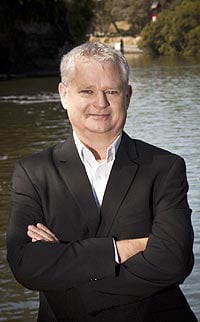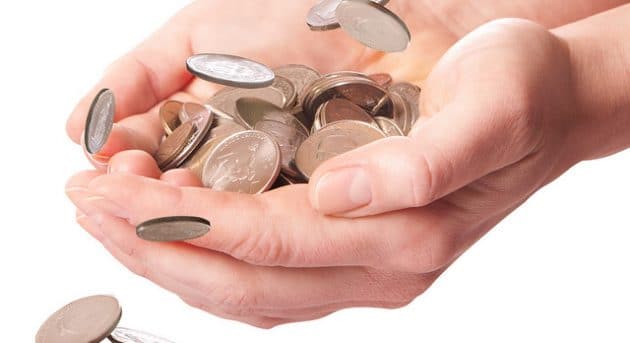How performers can maximize their tax return: Rachel Cole with accountant Paul Rattray
Our special End-Of-Financial-Year Stage Door Shrink session this week looks at helping performers maximise their tax returns (or, getting the government to subsidise your laser and new Laducas) thanks to Rachel Cole and accountant Paul Rattray. This one is a must read!

It is widely known that the 28-30 June are the 3 best days of the calendar year.
June 28 is “International Rachi Day”, when hundreds near and far celebrate my spawning. June 30 is “Rachi Beats the ATO Day”. The three days every year where I roll around in my 4 favourite things: attention, presents, excessive Facebook notifications and free money from the Government.
If there is one thing I’m passionate about other than cheap dumplings and cask wine, it’s getting a killer tax return. At tax time last year, Wicked was on tour in Melbourne, and backstage there was lots of tax talk.
Whilst we all made similar incomes and paid similar tax dollars, some people got back a few hundred and others up to 10K. How can that be right?
The Australian taxation system is very generous to performers, as we can claim for all kinds of outrageous items that people with boring, secure jobs (like accountants) can’t. I like to think of it as enforced savings. Or, Uncle Tony footing 40% of my laser bill, for me to be bald all over like a seal.
Kerry Packer has said, “If you pay more tax than you’re legally obliged to, you’re a fool.” Of course, Kerry was defending his ability to avoid tax all together, but his point stands. If the loophole or concession exists and it is legal, you are silly not to use it.
According to Paul Rattary

My tax accountant Paul Rattray is the goalie in my hockey team. We met 10 years ago at Sydney University Hockey Club and hit it off… get it? Professionally, he is a managing partner ATB Partners- a large Business Accountant, Tax Consultant and Financial Advisory firm in Sydney. He is a Certified Practicing Accountant (CPA), with a Masters of Accounting. Paul manages a huge variety of clients, including performing artists. Here is his advice for performers to maximize their tax return.
Use an accountant
Tax returns for performers are complex, in that there are often multiple deductions and various sources of income. It is faster, easier and you will get a better return if you use an accountant. Yes, there is a fee, but the higher return will make up for it. You also have the added benefit of knowing your tax will be completed correctly.
Know your industry specific tax exemptions
Educate yourself.
For performers: costumes, makeup (show specific), agent fees, union fees, headshots, professional subscriptions (AT2/Showcast), relevant show tickets, continuing education (singing/dance/acting classes), professional library (sheet music/music) are the most common deductions.
Here is a very comprehensive list provided by the ATO:
Click on this button! This is a must read!
Know what you can’t claim
Don’t claim for things not on the above list. I.e. Don’t claim audition expenses- flights for an audition, audition outfits etc. Likewise, most clothes cannot be claimed. I.e. you could claim a chorus heel, but not Nike’s. Only shoes or clothes which are not worn outside work can be claimed. Home office expenses are also tricky to claim if you use that room for anything other than work.
Have proof for every claim
Keep every receipt, and take a photo of it. This way you always have a copy of evidence. If you can’t find the receipt, or don’t have a photo, don’t claim it. I recommend the app Receipt Bank.
Organize your receipts before you arrive
Put the hard copy receipts into categories and tally them before your tax appointment. I.e. total all sheet music expenses. Consider these categories: tickets, subscriptions, personal library, agent commission, clothing, coaching/classes, equipment: phone/internet, fitness, grooming, photos, professional library, subscriptions, tickets and union fees.
Be honest
Once you have signed off on your tax, you are declaring that everything you have claimed is legitimate and backed by evidence (receipts). The accountant is only responsible for so much. So know what is reasonable to claim and what is greedy or misleading. If your accountant has misled you by not taking reasonable care or has made misleading statements, you are protected by The Safe Harbour Provision.
Read more about the Safe Harbour Provision here
Don’t red-flag yourself as an audit case
There are certain red flags the ATO notice before requesting an audit. Being audited is not a problem, but failing an audit is. If you claim on things such as clothing, travel too and from work and per diem related expenses, you are more likely to be audited. Talk to your tax accountant about your specific case.
Be reasonable: Income V Allowances when touring
Income is your taxable weekly wage, whereas allowances are tax-free monies to compensate you for meals, accommodation and incidentals incurred when you are away from home. If you are already paid an allowance, don’t try to claim against your income for that same item. Allowable deductions will depend on: what country you are working in, if you are employed locally or by an international organization, the laws of that country and the continuing changing laws of the ATO.
Small business/Sole trader VS Employee
Performers can be paid in 2 ways and this will determine what you can claim on tax. If you are working under your ABN (ie you invoice the company) then you are a sole trader/small business, and the government’s new legislation allows you to claim items related to growing your business (under 20K each). Whereas, if you are on a contract, and receive a PAYG slip come June 30 (group certificate), then you are an employee and you cannot make such claims.
Declare every dollar you earn
It is important to declare every dollar you earn, both for ethical and personal risk reasons. Even if you are paid in cash, that employer is probably declaring your income as a deduction for their own business through wages paid. That means the cash is still traceable and if you don’t declare it, you can get yourself into trouble, facing audits and fines from the ATO.
All the above is general advice; you should talk to Paul or someone at ATB about your tax needs.
www.atb.net.au
Rachel Cole is a Research Psychologist masquerading as understudy for Miss Honey and Mrs Wormwood in the Australian production of Matilda the Musical. She likes to think about what makes people tick. She also likes: Podcasts, politics, pepperoni pizza, property, puns, puppies and cheap things. If you know of a political podcast full of puns we can listen over a cheap pepperoni pizza while we walk a cheap dog looking at cheap property, we might just be fast friends.




